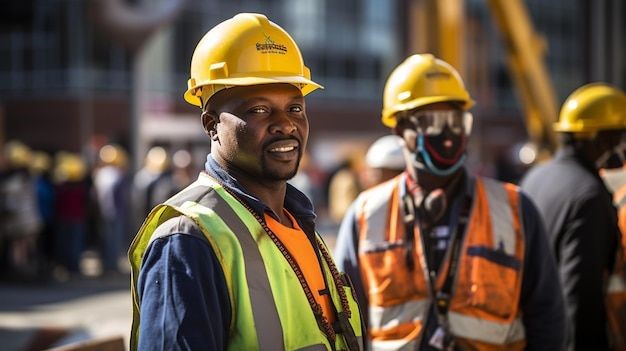
Let’s get something straight:
In the oil and gas industry, safety is not a checkbox.
It is a non-negotiable standard but a matter of life, death, and reputation.We work in high-risk environments: offshore rigs, flammable zones, heavy machinery, high-pressure systems. The consequences of failure are severe not just for personnel, but for communities, companies, and the nation’s trust in our industry.
This is where ISO 45001 comes in.
It’s not just a certification.
It is a call to operational maturity, a blueprint for protecting people, and a test of whether your company is truly built for long-term success in this sector.
What Exactly Is ISO 45001?
ISO 45001 is the international standard for Occupational Health and Safety Management Systems (OHSMS). It provides a clear framework for organizations to manage risk, prevent injury, and create a proactive safety culture.
Unlike older standards, ISO 45001 is not reactive. It doesn’t wait for accidents to happen before demanding change. It emphasizes:
-
Leadership commitment
-
Worker participation
-
Risk-based thinking
-
Systematic incident prevention
And if you’re still operating without it, You’re behind
-
Why It Matters Specifically for Oil & Gas Service Providers
If you’re in fabrication, maintenance, drilling, inspection, logistics, or EPC services etc, this concerns you.
Here’s why ISO 45001 is no longer optional:
1. Your Clients Are Demanding It
Major IOCs (International Oil Companies), NOCs, and upstream operators are tightening their procurement requirements. You will not make it past prequalification without a demonstrable, certified safety management system.
ISO 45001 isn’t a competitive advantage anymore. It’s entry-level compliance.
2. It Reduces Downtime and Liability
Every LTI (Lost Time Injury) is a cost in money, in credibility, and in human capital. ISO 45001 helps you structure safety not just as a department, but as a culture embedded into every operation.
The companies that last in this industry are those who learn to prevent before they react.
3. It Protects Your Most Valuable Asset — Your People
In oil and gas, every shift, every lift, every pipeline weld carries risk. We cannot keep leaving safety to memory or manual records. ISO 45001 ensures every worker has a voice, every hazard is assessed, and every decision is made with people in mind.
If your team doesn’t feel safe, they won’t perform. If your processes are sloppy, someone will get hurt. And when that happens, no contract is worth the cost.
4. It Future-Proofs Your Operations
Let’s talk about sustainability — not just environmental, but operational sustainability.
ISO 45001 helps you build structured systems that work even when individuals change, when new projects begin, or when audits come knocking. It gives you repeatable, reportable, and reliable control over safety.
If you plan to scale, partner internationally, or compete globally, this is the foundation you cannot skip.
What Must Nigerian Service Providers Do Now?
Let me be clear — compliance isn’t about chasing certifications for certificates’ sake. It’s about committing to doing things right, doing them better, and doing them safely.
Here’s what I recommend:
-
Conduct a gap assessment of your current safety practices.
-
Invest in proper HSE training — not just for HSE officers, but across all departments.
-
Document your processes and enforce them. If it’s not written, it doesn’t exist.
-
Engage workers at all levels — because safety only works when people believe in it.
-
Work toward ISO 45001 certification with reputable consultants — and don’t cut corners.
Final Thoughts: Safety Is Cheap Compared to the Cost of An Accident.
Let’s stop seeing safety as an administrative burden or a nice-to-have.
It is the pillar of trust in oil and gas operations.When your company achieves ISO 45001, you’re telling the world:
-
We protect our workers.
-
We manage risk responsibly.
-
We are fit to work at the highest level.
And in an industry where a single incident can set you back years, that message is not just powerful — it’s necessary.
Get it right. Get certified. Lead the way.
Because in oil and gas, you’re only as strong as your weakest safety procedure.-

